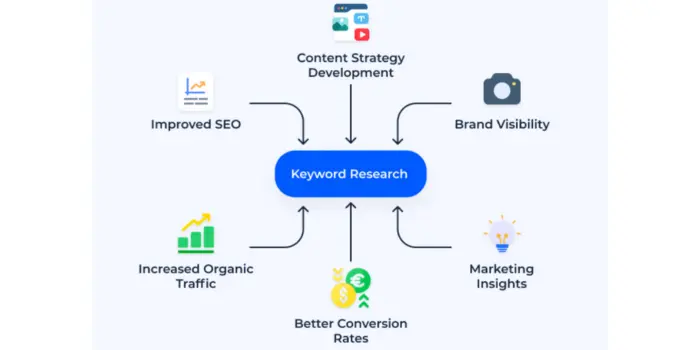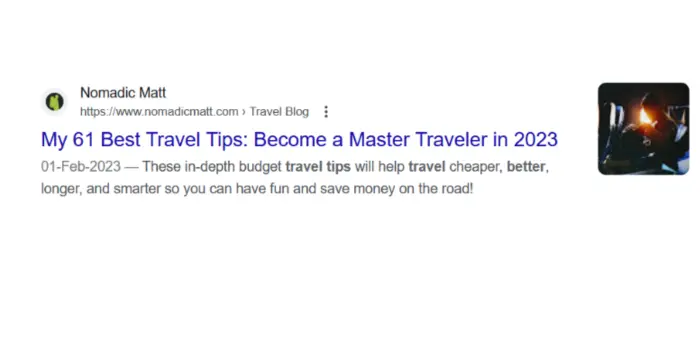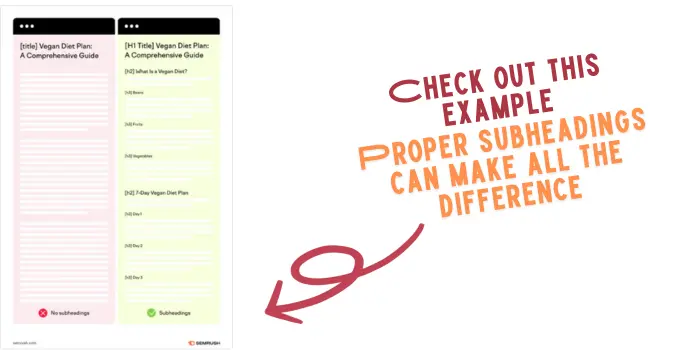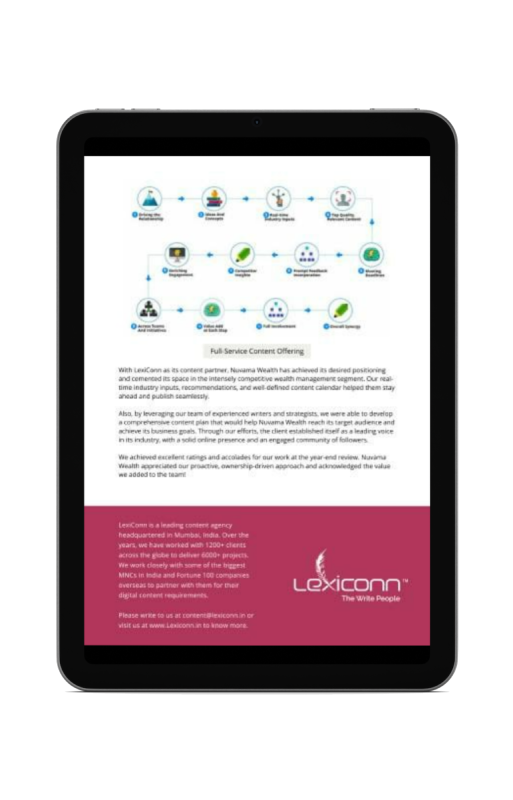
SEO article writing goes beyond simply dropping keywords into your text. It's about making content that both search engines and your readers will find valuable.
This means writing articles that address what your audience is curious about, offer solutions to their issues, and share fresh insights. And yes, you do this while weaving in those important keywords and phrases to help your content rank higher in search results.
The top three search results on Google receive 54.4% of all clicks.
68% of digital journeys start with a search engine.
A whopping 92.96% of worldwide traffic is generated by Google, including searches, images, and maps.
SEO brings in over 1,000% more traffic compared to organic social media.
According to 60% of marketers, inbound strategies like SEO and blogging are their top sources for quality leads.
Mobile phones account for 58.67% of global website traffic.
Every month, 8 billion queries are answered through Google Lens.
Local searches on mobile devices or tablets make up 57% of all local search queries.
Searching for business hours (54%) and directions to local stores (53%) are common for smartphone users.
Local searches on smartphones result in a purchase within a day 18% of the time, compared to 7% for non-local searches.
While shopping in-store, 56% of shoppers use their smartphones to research or shop for items.
Search, or user intent, is the purpose behind a user's search on search engines. Users may be seeking information (informational), trying to locate a specific website (navigational), or looking to make a purchase (commercial or transactional).
Understanding search or user intent is vital because it helps to tailor content that matches what users are actively searching for, improving the relevance and effectiveness of search results.
For instance, searching for "best dry cat food" on Google is typically commercial or transactional, as the user is looking to buy and may proceed if they find a suitable option.
Search engines like Google use data from past interactions to tailor results that align with the user's intent. For example, a search showing lists of top products indicates commercial intent.
Content aligned with user intent is more likely to rank well on search engines, keep users satisfied by providing the answers they seek, and convert visitors into customers, thus supporting a website's long-term success.
But how do you write SEO-optimized content that educates your readers and climbs the search engine ladder?
Before hitting away at the keyboard, take a step back and consider your target audience. Who are you trying to reach with your content? What are their needs, pain points, and desires?
Once you understand your audience's mindset, you can start researching the keywords they're using to find information online.
Are they looking for information, trying to compare products, or ready to purchase? Knowing this is crucial to decide what kind of information should be included as well as how it should be included.
Keywords are the building blocks of SEO. They are the words & phrases that people type into search engines to find information. Keyword research involves identifying your target audience's search patterns, identifying the key words and terms they use to search for particular content, and then incorporating those keywords into your content.

There are several keyword research tools available online, such as Semrush, Ahrefs, & Google Keyword Planner. These tools can help you find relevant keywords, see how often they're searched for (search volume), identify their use by competitors, and accordingly make decisions.
Did you know that 81% of people check Google reviews before visiting a local business? But here's the surprising part: more than half (56%) of businesses haven't taken any steps to optimize their presence in local searches.
That's a missed opportunity!
Your title tag and meta description are like your content's shop window on the SERP. They're the first things that users will see, so it's crucial to make them attention-grabbing and informative.
Title Tags: Your tags should be concise (ideally under 60 characters) & include your target keyword at the beginning.

Meta Descriptions: Meta descriptions should be around 150-160 characters long and give users a clear idea of your content. Use strong CTAs to encourage users to click through your website.
Responding to reviews matters! Nearly nine out of ten (88%) customers would choose a business that responds to feedback.
Search engines love content that is well-written, informative, and engaging. Here are some unique tips for crafting high-quality content:
Use clear & concise language: Avoid jargon and technical terms your audience may not understand.
Break up your text in bullet points & subheadings: This will make your content easier to read & scan.

Use active voice: Active voice makes the writing more engaging & persuasive.
Vary your sentence length: A mix of short and long sentences will keep your readers engaged.
Tell stories and use examples: People love stories! Use storytelling to illustrate your points and make your content more memorable.
Explore LexiConn’s SEO Article Writing Services!
On-page SEO refers to optimizing individual pages on your website. Here are some on-page SEO best practices:
Insert your primary keyword in the first paragraph & throughout your content: But do just what is necessary! Keyword stuffing is a black-hat SEO tactic (Black hat SEO refers to unethical tactics or practices that manipulate search engine rankings by violating search engine guidelines.) that can hurt your rankings.
Optimize your Image: Use alt tags to describe your images to search engines.
Complete your Google Business Profile! A complete profile with accurate information makes your business 2.7 times more likely to be seen as trustworthy. Plus, it increases the chances of customers visiting you by 70% and considering you for a purchase by 50%.
People are visual creatures, so incorporating high-quality images and videos into your content is a great way to break up text, make your content more visually appealing, and improve engagement.
Internal links connect pages within your website. They help search engines find your content and boost important pages within your site. Here's how to do it right:
Focus on Content: Link your most informative articles.
Clear Anchor Text: Use descriptive phrases within the text to create the link (not "click here").
Be Sensible: Add a handful of links per page, only where they make sense for the reader.
Update Old Posts: Revisit older content and link to newer, relevant articles.
Remember, a healthy internal linking strategy improves SEO and creates a better user experience!
Backlinks are links from other websites added to your website. They're like votes of confidence from other websites in the eyes of search engines. The more backlinks (obviously high quality) you have, the higher you rank in the SERPs.
There are many ways to build backlinks, such as creating infographics, guest blogging, and participating in online communities.

Don't let your content languish in obscurity! Promote articles on social media platforms, email newsletters, or online communities relevant to your niche. This increases brand awareness, drives traffic to your website, and potentially earns valuable backlinks – another SEO booster.
Check How LexiConn Can Help with Content Distribution
SEO is an ongoing process. Utilize website analytics tools to track your content's performance. Track & see which keywords are driving traffic, which type of content resonates with your targeted audience, & identify areas for improvement.
Use this data to refine your keyword strategy, optimize existing content, and adapt your approach for future articles.
As algorithms evolve, so should your SEO tactics. Read algorithm change updates published by Google, and reports published by leading SEO players like Semrush and Ahrefs.
It’s equally important to participate in online professional forums and social media communities dedicated to discussing SEO changes, and network with SEO specialists to understand what’s actually working and what’s not.

At the same time, engaging with your audience through comments, social media, and forums breathes life into your site. This isn't just good for your brand's image; it builds a community of loyal followers.
An engaged audience contributes to your site's dynamism, which, in turn, supports your SEO efforts. When search engines see active participation on your platform, they recognize your content as being of value to the visitors.
SEO article writing is about learning, adapting, and improving over time. It involves:
Getting to know your audience.
Using the best tools for the job.
Stay up-to-date with the latest advancements & changes in search engine algorithms.
By keeping up with these expert tips and constantly tweaking your strategy based on how well your content performs and the latest trends in SEO, you can craft articles that not only climb the search rankings but also genuinely captivate your readers.
Remember, being successful in SEO article writing goes beyond just appeasing search engines—it's about creating content that's truly valuable and engaging for your audience.
Enhance your SEO content analysis process and receive the latest search engine insights from our team of SEO experts. Our team blends the technical aspects of SEO with engaging writing to prepare SEO-optimized articles that boost your visibility and engage your audience.
LexiConn, a premier content writing agency in Mumbai, also offers a free 30-minute content consultation session to help you with your content strategy. Let's discuss how we can collaborate to unlock growth opportunities for your organization.
So, visit us at www.lexiconn.in or drop us a line at content@lexiconn.in.


I have read and accept the Privacy Policy
Read More